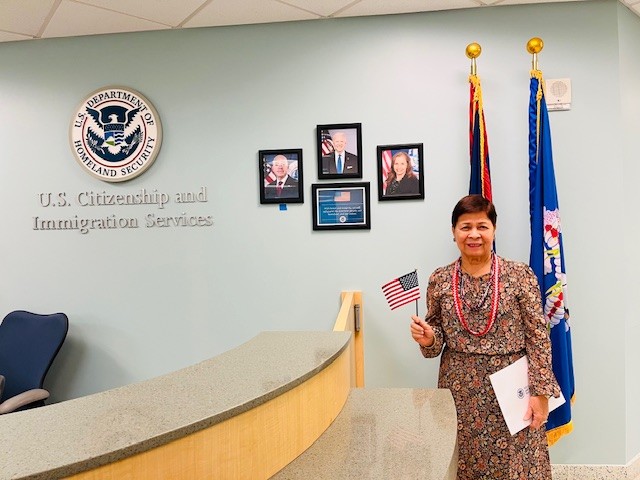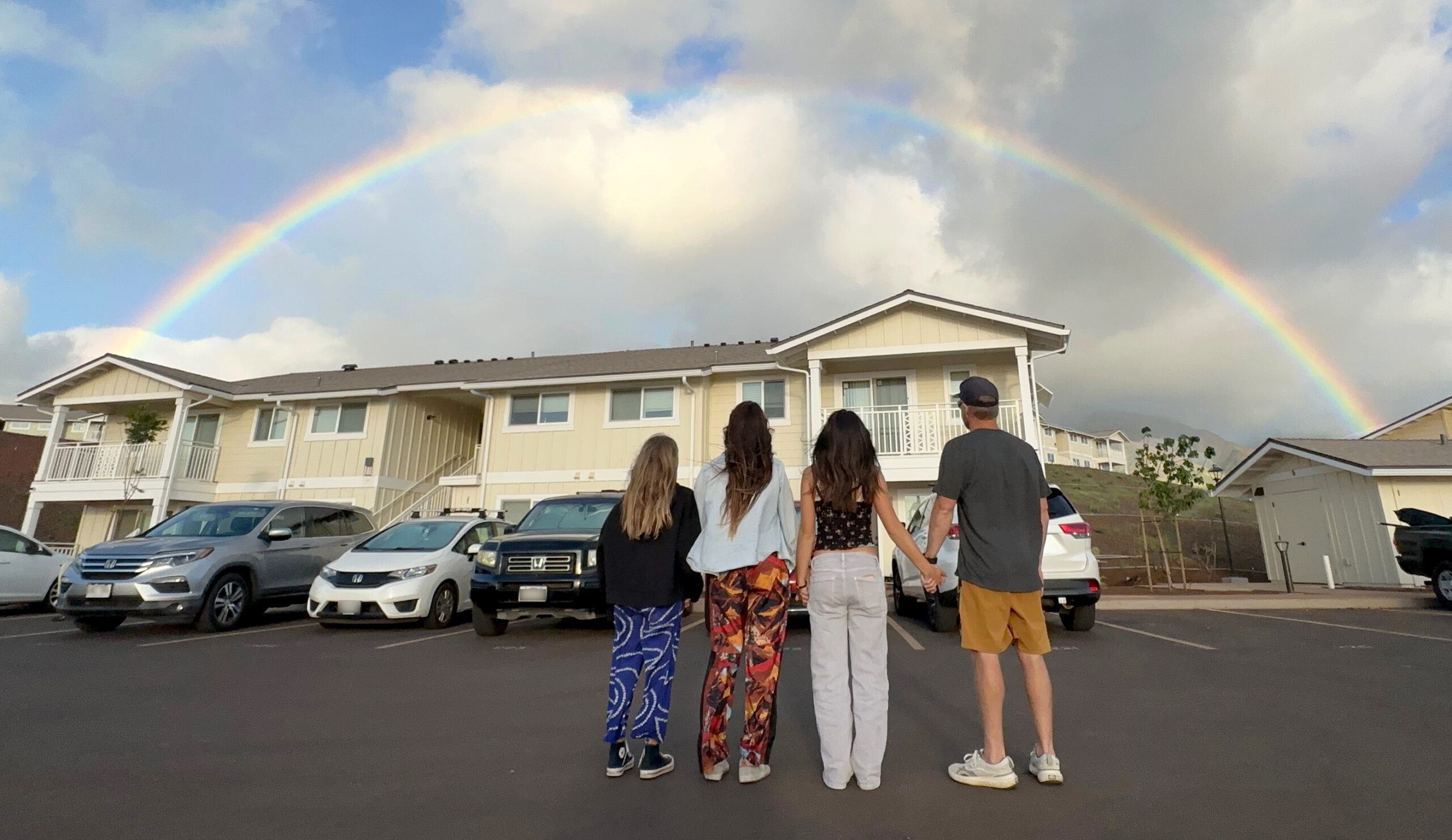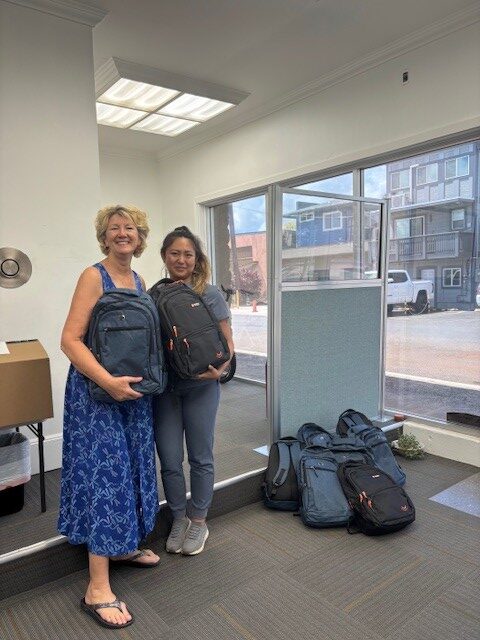Araceli Melendez, a 74-year-old Filipino immigrant, spent 38 years teaching Math and English at high schools in the Philippines before moving to Hawaiʻi with her husband in 2010. After years of waiting for their green cards, they were finally able to join their ʻohana in Hawaiʻi. Since then, Araceli has worked as a cashier at various stores, including Safeway in Salt Lake, while adjusting to life in Hawaiʻi.
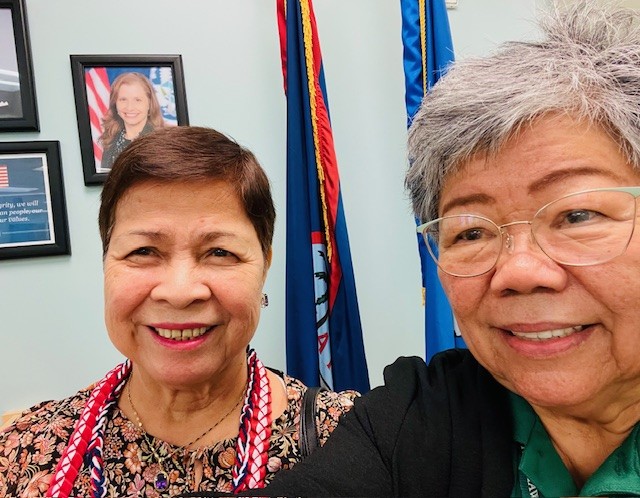
In June 2024, Araceli decided to pursue U.S. citizenship, feeling it was the right time to enjoy the benefits of voting, traveling with a U.S. passport, and no longer renewing her green card. She turned to Catholic Charities Hawaiʻi (CCH) for assistance with the application process. Through their support, Araceli was guided through the paperwork, the citizenship test, and preparation for the oath ceremony.
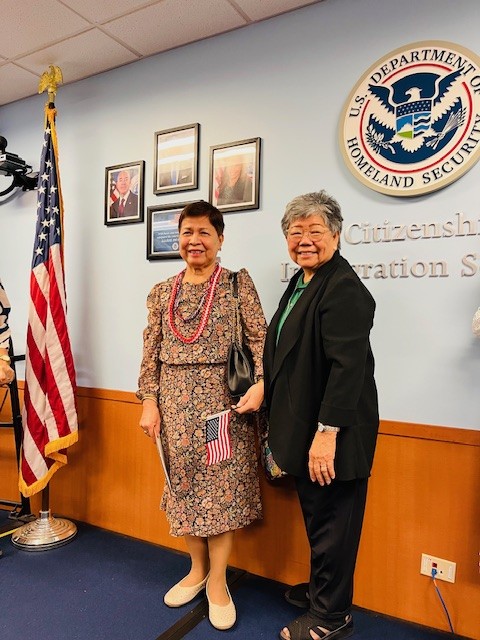
With the help of Sister Aurora de la Cruz, MM, and the CCH team, Araceli felt well-prepared and confident for the citizenship test, which she found easy after memorizing the 100 civics questions. The process went smoothly, and in January 2025, Araceli proudly took her oath of U.S. citizenship, surrounded by fellow Filipinos and new citizens from around the world.
Reflecting on her journey, Araceli is deeply grateful for the support she received from Catholic Charities Hawaiʻi and encourages others to reach out for help with the citizenship process. “They helped me every step of the way,” she says. “I’m so thankful for them.”
Now a U.S. citizen, Araceli is looking forward to traveling to the Philippines to visit family and applying for dual citizenship in the future. For her, this new chapter is a testament to the power of support, faith, and community.
The Filipino presence in Hawaiʻi has deep roots, dating back to 1906 when Filipino farm laborers were recruited by the Hawaiian Sugar Planters’ Association (HSPA) to work on sugar plantations. By 2020, according to the U.S. Census, there were 383,200 Filipinos in Hawaiʻi, making up about 25% of the state’s population. This long history of Filipino immigrants in Hawaiʻi has shaped the cultural and social landscape of the islands, contributing to a rich sense of community and shared experiences.

